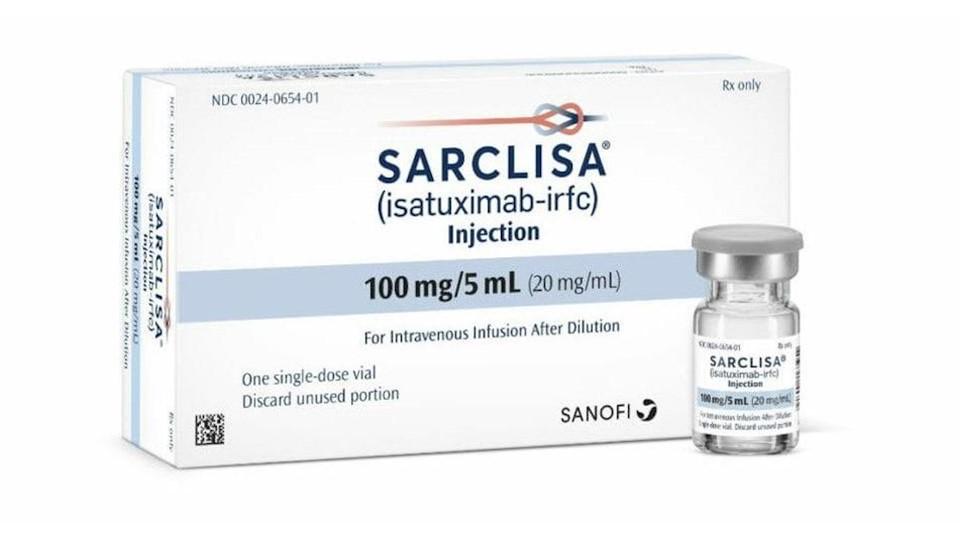FDA Approves Sarclisa for Newly Diagnosed Multiple Myeloma Patients Ineligible for Transplant
Sarclisa approved by FDA for use with VRd in newly diagnosed multiple myeloma patients ineligible for transplant.
Breaking News
Sep 21, 2024
Mrudula Kulkarni

The U.S. FDA has approved Sarclisa (isatuximab) in
combination with bortezomib, lenalidomide, and dexamethasone (VRd) as a
first-line treatment for adult patients with newly diagnosed multiple myeloma
(NDMM) who are not eligible for autologous stem cell transplant (ASCT). This
marks the first approval of an anti-CD38 therapy with the standard VRd regimen
for these patients. The approval follows the results of the IMROZ phase 3
trial, which showed a significant improvement in progression-free survival (PFS)
compared to VRd alone, reducing the risk of disease progression or death by
40%.
Dr. Thomas Martin from UCSF highlighted the importance of
this approval, noting that multiple myeloma often affects older patients, for
whom treatment options are limited due to age and related health factors. The
addition of Sarclisa to the VRd regimen significantly improves patient
outcomes, addressing a critical gap in care for this vulnerable group.
This is Sarclisa’s third FDA-approved indication, reflecting
Sanofi's ongoing commitment to advancing multiple myeloma care. The FDA granted
Priority Review for Sarclisa, recognizing its potential to offer meaningful
improvements for patients. Sarclisa is already approved in more than 50
countries for other multiple myeloma treatments, including for relapsed or
refractory disease.
Brian Foard, Sanofi's Executive Vice President, noted that
since Sarclisa's launch in 2020, the company has made significant strides
toward establishing it as a leading therapy. With this latest approval, doctors
now have a more effective treatment option for newly diagnosed patients,
slowing disease progression more effectively than current standard-of-care
treatments.
